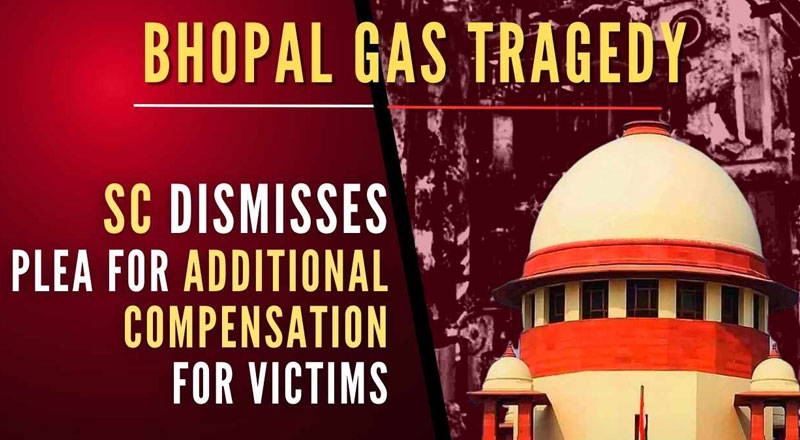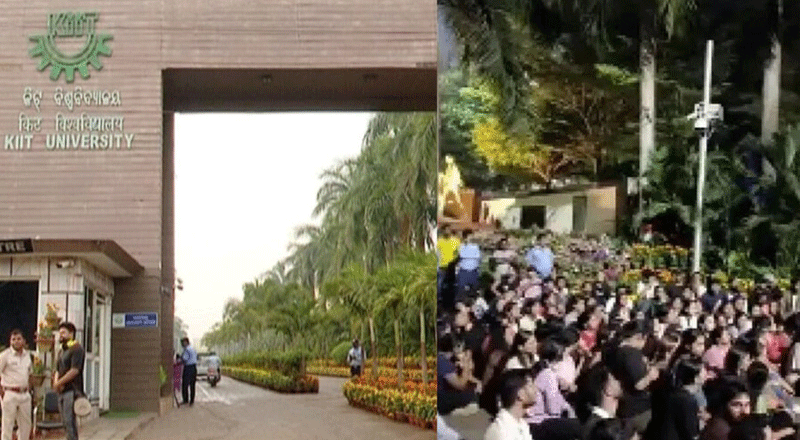- The Supreme Court today dismissed its petition seeking more compensation from Union Carbide for the 1984 Bhopal Gas Tragedy. The gas leak that killed over 3,000 people is among the world’s worst industrial disasters.
- The five-judge constitution bench said there was no rationale by the Centre to rake up the issue two decades after the settlement. A sum of Rs 50 crore lying with the RBI for the victims shall be utilised by the Union of India to satisfy pending claims of victims.
- The Centre wanted another Rs 7,844 crore from the UCC’s successor firms over and above the USD 470 million (Rs 715 crore) it got from the American company as part of the settlement in 1989.
- The then Union Carbide chairman Warren Anderson was prime accused in the case, A Bhopal court declared him an absconder in 1992. Two non-bailable warrants were issued before his death in 2014.
In a big setback for the centre, the Supreme Court today dismissed its petition seeking more compensation from Union Carbide for the 1984 Bhopal Gas Tragedy. The gas leak that killed over 3,000 people is among the world’s worst industrial disasters. The centre had sought that the case be reopened and Union Carbide’s successor firms be directed to pay additional compensation worth ₹ 7,844 crore. The Centre had filed a curative plea for more compensation from the Union Carbide Corporation’s (UCC) successor firms for the victims of those killed in the tragedy.
A five-judge constitution bench headed by Justice Sanjay Kishan Kaul said there was no rationale by the Centre to rake up the issue two decades after the settlement. The top court said that a sum of Rs 50 crore lying with the RBI for the victims shall be utilised by the Union of India to satisfy pending claims of victims.
The Centre wanted another Rs 7,844 crore from the UCC’s successor firms over and above the USD 470 million (Rs 715 crore) it got from the American company as part of the settlement in 1989. “We are unsatisfied with the Union of India for not furnishing any rationale for raking up this issue after two decades. We are of the view that curative petitions cannot be entertained,” the bench said.
A curative petition is the last resort for a plaintiff after an adverse judgement has been delivered and the plea for its review is rejected. The Centre had not filed a review petition for rescinding the settlement which it now wants to be enhanced.
The UCC, now owned by Dow Chemicals, gave a compensation of USD 470 million in 1989 after the toxic methyl isocyanate gas leak from the Union Carbide factory on the intervening night of December 2 and 3, 1984 killed over 3,000 people and affected 1.02 lakh more.
The then Union Carbide chairman Warren Anderson was prime accused in the case, but did not appear for the trial. A Bhopal court declared him an absconder in 1992. Two non-bailable warrants were issued before his death in 2014. On June 7, 2010, a Bhopal court sentenced seven executives of Union Carbide India Limited to two years in jail.





